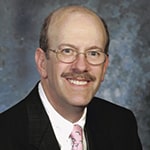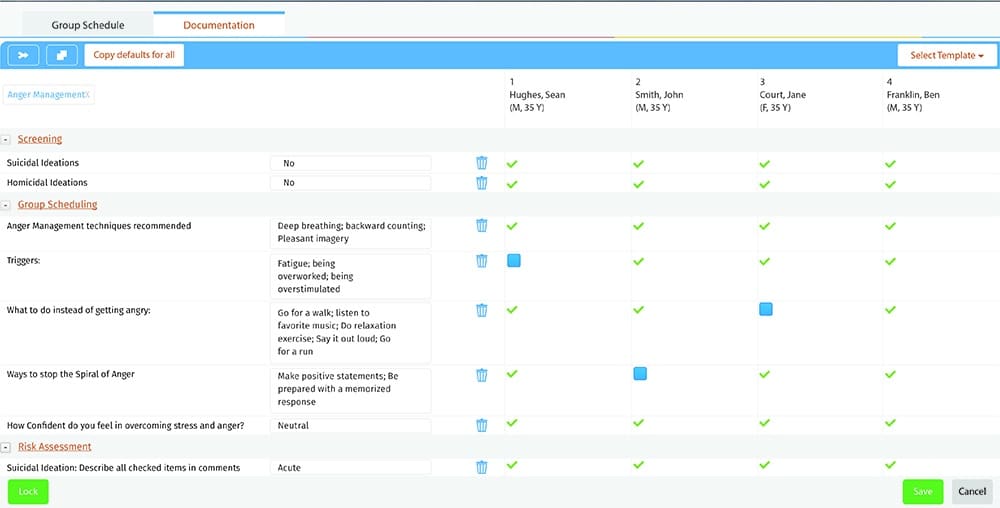Published on Wednesday, January 24, 2018
The cornerstone of patient-centric care is collaborative care planning. In this live eCW Podcast from the 2017 National Conference, Dr. David Zalut from Kennedy Health Alliance outlines how an integrated healthcare delivery system helps the organization serves its patients.
“Girish does a great job presenting what’s coming out. Even more importantly, I can go to conferences. Just an hour ago I went to one and learned something new. Despite using eClinicalWorks for more than 11 years, I still learn new things when I go to the National Conference.”
Dr. David Zalut, Physician & IT Medical Director, Kennedy Health Alliance

Topics From This Episode
Population Health — Care Management
The Kennedy Health Alliance has successfully met emerging challenges in value-based care through the use of the care management tools eClinicalWorks offers for Population Health. Kennedy has used the PQRS solution, met Meaningful Use requirements, and been recognized as a Level 3 Patient-Centered Medical Home.

Support & Training
Kennedy Health Alliance derives extraordinary value from the eClinicalWorks National Conference, placing particular emphasis on the hands-on support and training. Dr. David Zalut is able to meet one-on-one with product experts with the knowledge and experience to address his organization’s questions, from reading reports and locking Progress Notes to using every feature in the Right Chart Panel.

Transcript:
Adam Siladi: Hello and welcome to this live edition of the eClinicalWorks Podcast here at the 10th annual National Users Conference here in Dallas, Texas. I’m Adam Siladi with the eCW Podcast, and joining me today is Dr. David Zalut from Kennedy Health Systems, who is a practicing physician, but also the IT medical director. Dr. Zalut, thank you so much for being here.
David: Thank you so much for having me.
Adam: So, tell us a little bit about your organization to get started.
David: The organization started out as a primary care-based affiliated hospital practices, and now we’ve expanded into a significant number of sub-specialties. We have gastroenterologists, endocrinologists, vascular surgeons, general surgeons, breast surgeons, etc.
Adam: And what types of initiatives are high priority for your organization at this time?
David: Certainly, as reimbursement of medical care changes, and Population Health becomes much more important, we’re very aggressive in making sure that our providers give the best care at the most cost effective, and as we grow into more ACO usage, we will be even more importantly looking at those issues.
Adam: So, I think value-based care is a big priority on a lot of people’s agendas. That’s part of I think the reason that they’re coming here to learn a lot about this trend here at our Conference, but you are a repeat attendee at our Conference, right? How many Conferences have you been to?
David: This is the ninth one. I missed the first one, because I was in solo practice, and just couldn’t take time away, and felt so badly that I’ve come every year after since.
Adam: I think there are only four people at eClinicalWorks who have been to all of them, so you’re right up there with the group. What keeps you coming back to these Conferences?
David: It’s interesting, I’ve been asked that. Many colleagues have asked me that, and I think the important things that I get is that the Keynote is incredible. I mean, Girish does a great job of presenting what’s coming out, but more importantly, I can go to conferences, and even just an hour ago, I went to a conference and learned something new. And in spite of using it for over 11 years, I learn things new when I go to the Conference.
Adam: So, you never know it all, huh? There’s always something new. Now I think you actually shared a revelation that you had just recently. What was that?
David: I mean, I’ve been going to support for a number of years to ask about MAN 2 and PPD reads, because now you lock the Notes when you’re finished giving the PPD, and how am I going to read it without having to open the Note up again, or leave it open? And absolutely, just a few hours ago, I learned the new procedure with using the Right Chart Panel and bringing it over, and you can read your PPD without having to leave that Note open.
Adam: Absolutely. Things are always changing, we’re always making enhancements, or correcting things that have been issues in the past. The Conference is a great way to keep up with that. We also have a lot of online resources, the Podcast being one of them, or lots of other self-help information on my.eclinicalworks.com.
David: I think you left out a very important reason that I come to this, and that’s for support. The hands-on support here is absolutely just unbelievable, in that I get dedicated support people that deal with the issues, and they’re high level enough that they understand somebody who’s been on it for a long time, knows the functionality, and only needs to bring the things that he’s unable to fix himself.
Adam: Now, you mentioned at the beginning that you’re looking at Patient Engagement, Population Health, value-based medicine. Where do you think those things are headed, Population Health and Patient Engagement.? And what is your organization doing to prepare for that?
David: Organizationally, we’ve already done PQRS, Meaningful Use, we’re Patient-Centered Medical Home Level 3, and now with more specialties coming we’re even looking at the subspecialty Patient-Centered Medical Homes. In addition, we have contracts with various insurers that will pay us based on our quality, and I think it’s more important for our providers to not only look at it as how are you going to get paid, but making sure you keep up your quality and improve your quality. And we’re using every single eClinicalWorks option to make that happen.
Adam: Tell me a little bit about your implementation for PCMH, PQRS, those types of things. What kind of help did you get along the way?
David: I think the amazing thing was I actually see the consultant that has helped me at the level of PCMH here. And I’ll give him a little plug, Nikel [need to confirm name]. Honestly, he was so helpful. It was a project that took us, I would say 14 months. And he knew his ins and outs perfectly. PQRS and Meaningful Use, I had another consultant, Pooja [need to confirm name], and I could ask her a question, and right away she knew the answer and was able to allow us to do it in a very simple, easy, organized, and incredibly documented fashion, so that there would never be a problem with her, or him.
Adam: To take a second about the other part that you mentioned earlier, which is the value-based care. What track are you taking towards the Quality Payment Program? Are you going toward the MIPS track, or towards the Advanced Alternative Payments?
David: It’s a little of both. My personal part of the practice and another one of our practices is in CPC+. I was in CPC for three years and so we’re doing advanced and we’re doing MIPS for everybody else. So it’s a little bit of both.
Adam: And I’m sure you’re able to get all those people moving along efficiently with that. Now, another thing that I think is on a lot of people’s radar is the idea of risk, especially when we’re moving into this value-based world. Risk becomes very important, because in order to understand how much value we’re providing, we need to understand what we would be at risk for if we weren’t intervening appropriately. So, what is your organization doing to address the topic of risk?
David: Pretty much, right, the baby steps of an ACO, in that we’re going to grow into the ACO and we have organizationally started the ACO background build. So we’re not part of the ACO yet, but we’re using all of the tools that are available in eClinicalWorks to set up the background to then move into the ACO.
Adam: So, with the ACO model, I think one of the things that we tie in there is the Johns Hopkins ACG risk model, and we use the claims feed that ACOs generally get to provide a number of dashboards that give you that information. We also do things like HCC risk scoring. And what do you think about the new Rising Risk Indicator?
David: I’m really signing up for it, that’s how impressed I was with it, in that it’s already something that I’ve talked to the people on the floor of eCWCentral. I’ve talked to the various support people and that’s a go. I have a screenshot that I’m taking back to my organization to show what it’s going to do.
Adam: And so, just to conclude, what do you think is the biggest challenge for organizations in the future?
David: It’s really not knowing how quickly the changes are going to occur, so you can set yourself up for the fee-for-service model that you’ve been using all along ,and then the risk model comes along, and the payments based on quality are coming along, but we don’t know how fast it’s going to happen, so we still haven’t gotten that crossover yet, where it’s going to cross over from fee-for-service into the risk, into the payment for quality, and when’s that going to happen?
Adam: With all that uncertainty, what would your advice be to other organizations?
David: Well, unfortunately, it’s going to sound a little bit corny, but because I’m here, it’s utilizing the tools that are available in order to make it work the best you can and learn as much as you can from your various compatriots that are here and that have early done it. I mean, I have met people that have already done it.
Adam: Well, Doctor Zalut, thank you so much for all of your insightful answers, and for your being here, a nine-time Conference attendee. Nine out of 10 is not bad, so we’re hoping to see you for the next nine as well, and I hope you have a great trip back. My name is Adam Siladi, for the eClinicalWorks Podcast. You can check out our other episodes on iTunes, YouTube, and my.eclinicalworks.com. Thanks for watching.





